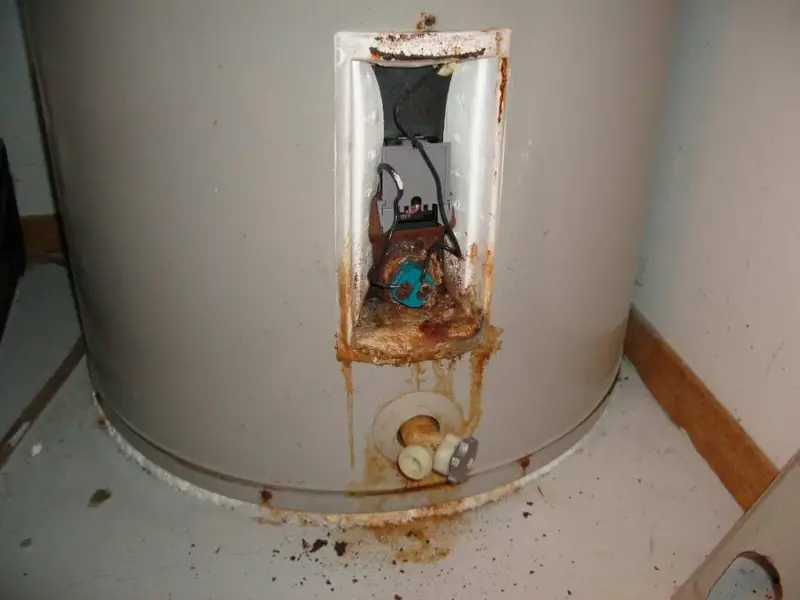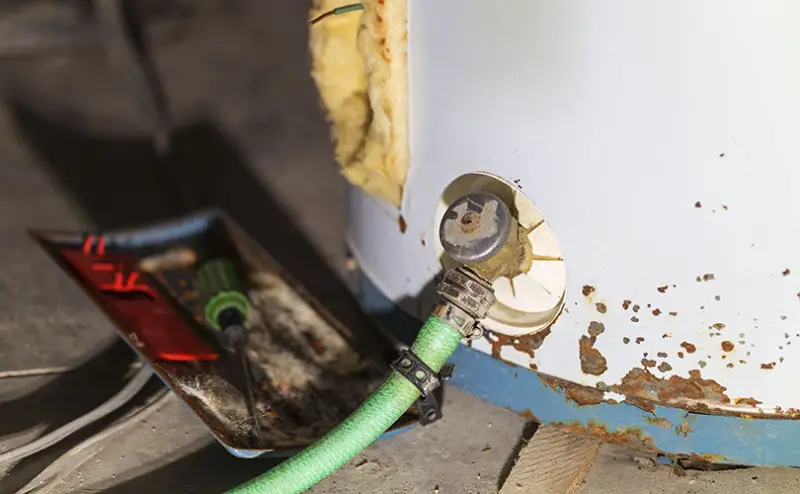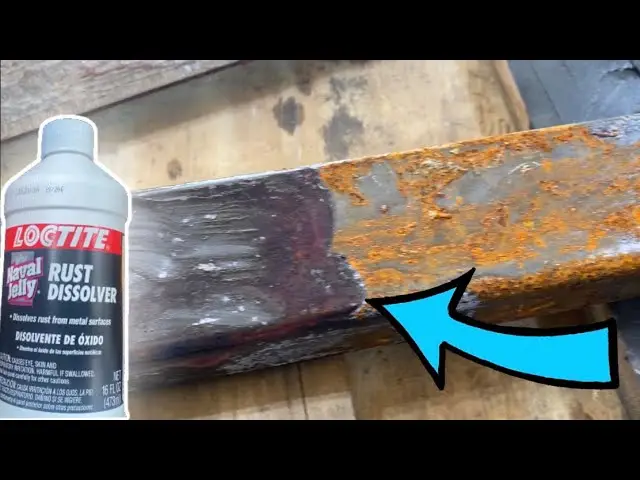Water heaters are essential for keeping our homes comfortable, but over time, they can develop a problem known as rust. Rust can weaken the tank, cause leaks, and lead to other problems that can be both expensive and time-consuming to fix. In this blog post, we’ll take a closer look at the causes of rust in water heaters, the dangers it presents, and the steps you can take to prevent it from happening. We’ll also discuss the signs that your water heater may be rusting and what you can do if it is.
With the help of this post, you will be better equipped to identify the signs of rust in your water heater and take the necessary steps to keep it functioning properly. Whether you’re a homeowner or a property manager, this information will help you ensure that your water heater is working efficiently and safely. So, let’s dive in and discover the secrets of preventing rust in water heaters. Have you ever noticed discoloration in your hot water? Could it be a sign of rust? Read on to find out!
Rust In A Water Heater: Common Problems and Solutions
This is a common problem that can cause some serious headaches, but don’t worry, there are steps you can take to prevent it and keep your water heater running smoothly.
First of all, let me tell you, rust in water heaters can be caused by a variety of factors, such as high levels of iron in the water supply, exposure to moisture, and corrosion. But the good news is, there are products out there that can help prevent rust from forming in the first place! For example, sacrificial anodes, which are rods made of a more reactive metal than the tank itself, can help attract rust-causing elements away from the tank. Another option is a water softener, which can remove the iron from the water before it even reaches the tank.
Additionally, there are some simple steps you can take to keep your water heater rust-free. For example, make sure you flush the tank regularly to remove any buildup of sediment. And if you live in an area with hard water, consider installing a water softener to help prevent rust from forming in the first place.
In conclusion, rust in water heaters is a common problem, but it’s not one that you need to suffer through. With the right products and some simple maintenance steps, you can keep your water heater rust-free and functioning smoothly for years to come!
Several Methods Available for Solving Rust in Water Heaters
- Flushing the Tank: Regularly flushing the tank can help remove any buildup of sediment and reduce the risk of rust.
- Installing a Water Softener: A water softener can remove the iron from the water before it reaches the tank, helping to prevent rust from forming in the first place.
- Using a Sacrificial Anode: A sacrificial anode is a rod made of a more reactive metal than the tank itself. When installed, it attracts rust-causing elements away from the tank, helping to prevent rust from forming.
- Replacing the Tank: If the rust in your water heater is severe, you may need to replace the tank entirely. This is a more expensive option, but it can be necessary if the rust has caused significant damage to the tank.
Comparison Table:
| Method | Pros | Cons |
|---|---|---|
| Flushing the Tank | – Simple and inexpensive | – May not solve the problem if the rust has already formed |
| Installing a Water Softener | – Prevents rust from forming | – Expensive to install and maintain |
| Using a Sacrificial Anode | – Prevents rust from forming | – May need to be replaced regularly |
| Replacing the Tank | – Solves the problem completely | – Expensive |
Solving rust in water heaters requires a careful evaluation of your specific situation. Flushing the tank regularly can help prevent rust from forming, but if the rust has already formed, you may need to take more drastic steps, such as installing a water softener, using a sacrificial anode, or replacing the tank entirely. By considering the pros and cons of each method, you can make an informed decision about which one is best for you and your water heater.

Table of Equipment to Work with Rust in Water Heater
| Equipment | Purpose |
|---|---|
| Screwdriver | To remove access panels or access valves on the water heater |
| Wrench | To loosen and tighten nuts and bolts on the water heater |
| Rust dissolver solution | To dissolve rust inside the tank |
| Protective gloves | To protect hands from rust dissolver solution and other chemicals |
| Shop vacuum | To remove sediment and rust particles from the tank |
| Flushing kit | To attach to the drain valve to flush the tank |
| Sacrificial anode | To prevent rust from forming in the tank |
| Water softener | To remove iron from the water before it reaches the tank |
| Replacement tank | In case the rust has caused significant damage to the original tank |
Note: It’s important to follow manufacturer instructions and safety guidelines when using these tools and equipment. If you’re not comfortable working on your water heater, it’s recommended to seek the assistance of a professional plumber.

Step-by-step Instruction on How to Deal with Rust in your Water Heater
Step 1: Turn off the power and water supply to the water heater
- Locate the main power switch and turn it off. If your water heater is electric, make sure to turn off the circuit breaker as well.
- Turn off the water supply to the water heater by closing the valve that controls the flow of water into the tank.
Step 2: Remove the access panels or access valves
- Locate the access panels or access valves on your water heater.
- Use a screwdriver to remove the screws or bolts holding the panels or valves in place.
Step 3: Prepare the rust dissolver solution
- Prepare the rust dissolver solution according to the manufacturer’s instructions.
- Wear protective gloves to protect your hands from the solution and other chemicals.
Step 4: Pour the rust dissolver solution into the water heater
- Carefully pour the rust dissolver solution into the water heater through the access panels or valves.
- Let the solution sit in the tank for the recommended amount of time (usually several hours) to dissolve the rust.
Step 5: Remove the dissolved rust and sediment
- Use a shop vacuum to remove the dissolved rust and sediment from the tank.
- If necessary, use a flushing kit to attach to the drain valve and flush the tank.
Step 6: Repeat the process if necessary
- Repeat the process of dissolving the rust and removing it from the tank if necessary.
- Be sure to follow the manufacturer’s instructions for the rust dissolver solution to ensure success.
Step 7: Reinstall the access panels or valves
- Carefully reinstall the access panels or valves on the water heater.
- Use a wrench to tighten the screws or bolts.
Step 8: Turn on the power and water supply
- Turn on the main power switch and, if your water heater is electric, turn on the circuit breaker.
- Turn on the water supply to the water heater by opening the valve that controls the flow of water into the tank.
Step 9: Monitor the water heater
- Monitor the water heater for leaks or other issues.
- If you notice any problems, turn off the power and water supply and call a professional plumber for assistance.
FAQ
What causes rust in water heaters?
Rust in water heaters is usually caused by the presence of iron in the water, which reacts with the metal in the tank to form rust. Over time, this rust can accumulate and cause damage to the tank.
Can rust in water heaters be harmful to my health?
Rust in water heaters is not usually harmful to your health, but it can affect the quality and taste of your hot water. In some cases, the presence of rust in the water can also indicate other issues with your water quality, such as high levels of iron or other minerals.
Is it possible to remove rust from a water heater tank?
Yes, it is possible to remove rust from a water heater tank. You can use a rust dissolver solution to dissolve the rust, and then use a shop vacuum or flushing kit to remove the dissolved rust and sediment from the tank.
What is the best method for preventing rust in water heaters?
The best method for preventing rust in water heaters is to use a water softener to remove iron from the water before it reaches the tank. Another option is to install a sacrificial anode, which will attract rust to itself instead of the tank.
How often should I check my water heater for rust?
It’s a good idea to check your water heater for rust once a year, especially if you have hard water or a high level of iron in your water supply.
If I have rust in my water heater, do I need to replace the entire tank?
Not necessarily. If the rust is minor and has not caused significant damage to the tank, you may be able to remove it and prevent future rust from forming. However, if the rust has caused significant damage to the tank, it may be necessary to replace the entire tank.
Is it safe to work on my water heater myself, or should I call a professional plumber?
If you’re not comfortable working on your water heater, it’s recommended to seek the assistance of a professional plumber. This will ensure that the job is done correctly and safely, and will also give you peace of mind.



Leave a Reply